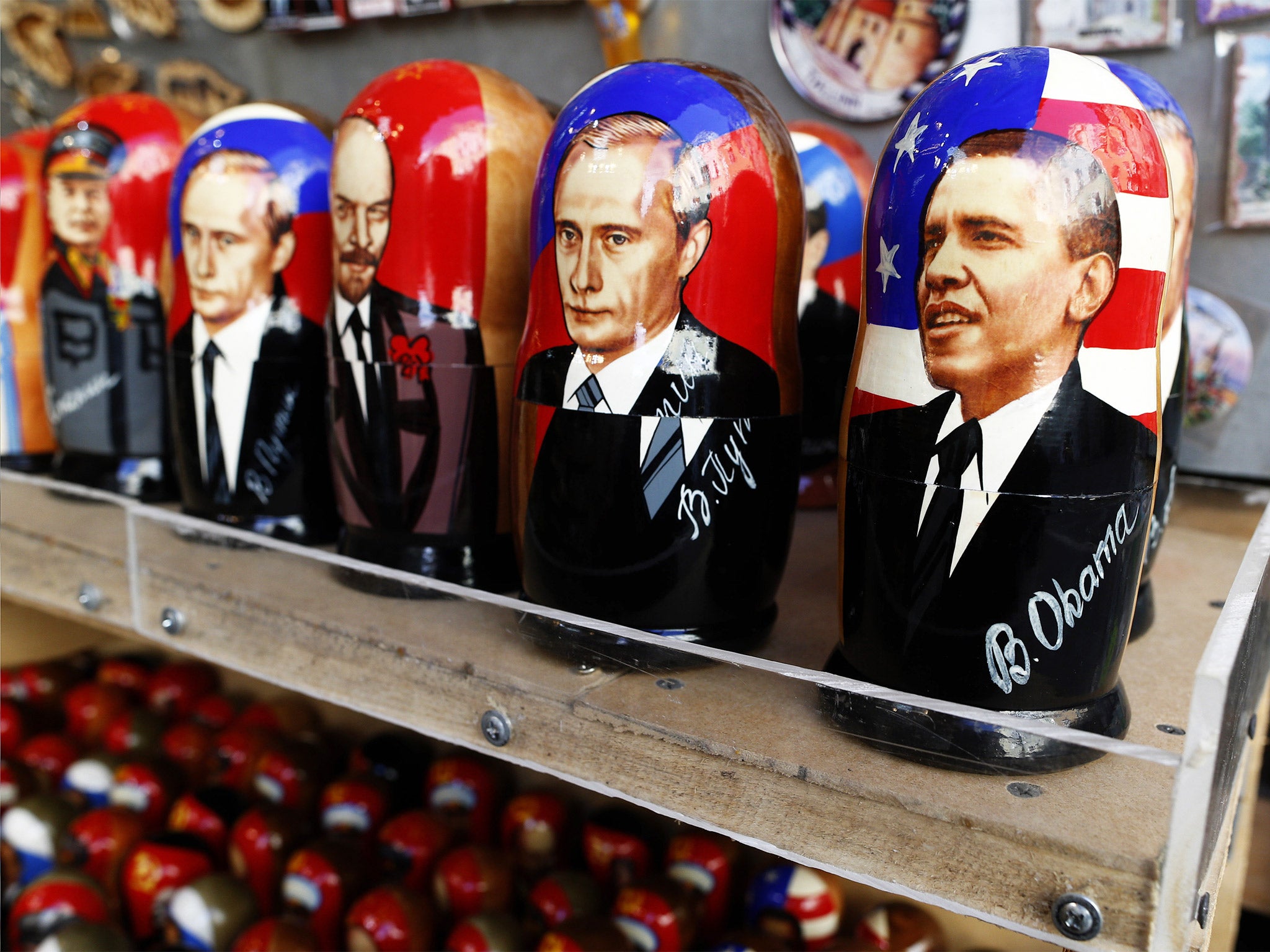Ukraine crisis: Europe looks to Obama as Baltic states demand West takes tougher action against Russia
The US President's muted response to the situation is drawing fierce criticism at home and abroad as he arrives in Estonia

Your support helps us to tell the story
From reproductive rights to climate change to Big Tech, The Independent is on the ground when the story is developing. Whether it's investigating the financials of Elon Musk's pro-Trump PAC or producing our latest documentary, 'The A Word', which shines a light on the American women fighting for reproductive rights, we know how important it is to parse out the facts from the messaging.
At such a critical moment in US history, we need reporters on the ground. Your donation allows us to keep sending journalists to speak to both sides of the story.
The Independent is trusted by Americans across the entire political spectrum. And unlike many other quality news outlets, we choose not to lock Americans out of our reporting and analysis with paywalls. We believe quality journalism should be available to everyone, paid for by those who can afford it.
Your support makes all the difference.Barack Obama has landed in a nervous Estonia for talks with the leaders of the Baltic states, who will demand the United States and Nato take firmer steps to bolster their security amidst the continuing crisis in eastern Ukraine.
Coming on the eve of the Nato summit in Wales, Mr Obama’s visit is meant as a gesture of solidarity. But such is the alarm over Russia’s intervention in Ukraine that symbolism alone may not satisfy his hosts.
Mr Obama, accused by critics at home of taking too cautious an approach to Vladimir Putin, will be limited in the response he can give. While Nato is expected to approve the creation of a rapid response force for Eastern Europe at its summit this weekend, it cannot propose permanent bases in the Baltics without violating previous treaty agreements with Russia.
At the weekend, President Toomas Hendrik Ilves of Estonia spoke of an “undeclared war” in Ukraine. Lithuanian President Dalia Grybauskaite went further. “Practically Russia is in a state of war against Europe,” she said, urging Western governments to start sending arms to Kiev.
Alliance leaders face the dilemma of wanting to give a sufficiently forceful response to renewed Russian belligerence while not further provoking Moscow.
The crisis remained volatile as a senior Ukrainian official publicly asserted that regular Russian troops had been identified in both main cities in eastern Ukraine where fighting is fiercest, Donetsk and Luhansk, as well as elsewhere in the east.
Moscow was meanwhile brawling with Brussels over leaks of a call between EU Commission President Jose Manuel Barroso and President Putin in which the latter may or may not have boasted that Russia could seize Kiev in two weeks if so inclined. Yuri Ushakov, a top foreign policy adviser in Moscow, told reporters that Mr Putin’s statement had been “taken out of context and carried a completely different meaning”. He accused Mr Barroso of loose-lipped behaviour “unworthy of a serious politician”.
Whether or not the remark had been taken out of context, the message seemed to be clear: what has happened so far is mere dabbling compared to what Moscow could do.
Diplomats in Brussels said the EU is working further to expand sanctions against Russia for its slow-motion invasion of Ukraine. New action could include barring all state-owned entities from raising finances in the EU and forbidding Russia’s Defence Minister, Sergei Shoigu, from entering EU member states.
The UN refugee agency in the meantime lamented the soaring numbers of Ukrainians displaced by the fighting in their country. “It’s safe to say you have over a million people now displaced,” Vincent Cochetel, of the UNHCR, told reporters in Geneva. Casting his own eye towards the Nato summit, the UN Secretary-General, Ban Ki-moon, urged caution. “There is no military solution to this. There should be a political dialogue for a political solution.”
But the pressures continue to grow on Mr Obama and his Western colleagues to meet Mr Putin’s manoeuvres with greater resolve. In the US, a new poll showed a majority of Americans believed the President had not been tough enough on foreign policy. Such findings embolden his critics, particularly Republicans. Comparing him to Mr Putin, Senator Ted Cruz, a hawk from Texas, told an audience of conservatives that the “Russian bear is encountering the Obama kitty cat”.
Nowhere is the rhetoric of alarm stronger than in Kiev itself. Valeriy Heletey, Ukraine’s Defence Minister, vowed on Monday to “immediately mount defences against Russia, which is trying … to advance on other territories of Ukraine”. On his Facebook page, he said “a great war arrived at our doorstep, the likes of which Europe has not seen since World War II” and warned of “tens of thousands of deaths”.
The sense of crisis is only slightly less vivid in the Baltic states, even if as members of Nato they should have less to fear than Kiev. “The Baltic countries aren’t worried about immediate Russian actions themselves as much as they fear that their allies in the West do not seem to understand what is going on or… do not want to take appropriate measures,” said Vykintas Pugaciauskas, a Lithuanian political scientist.
Join our commenting forum
Join thought-provoking conversations, follow other Independent readers and see their replies
Comments